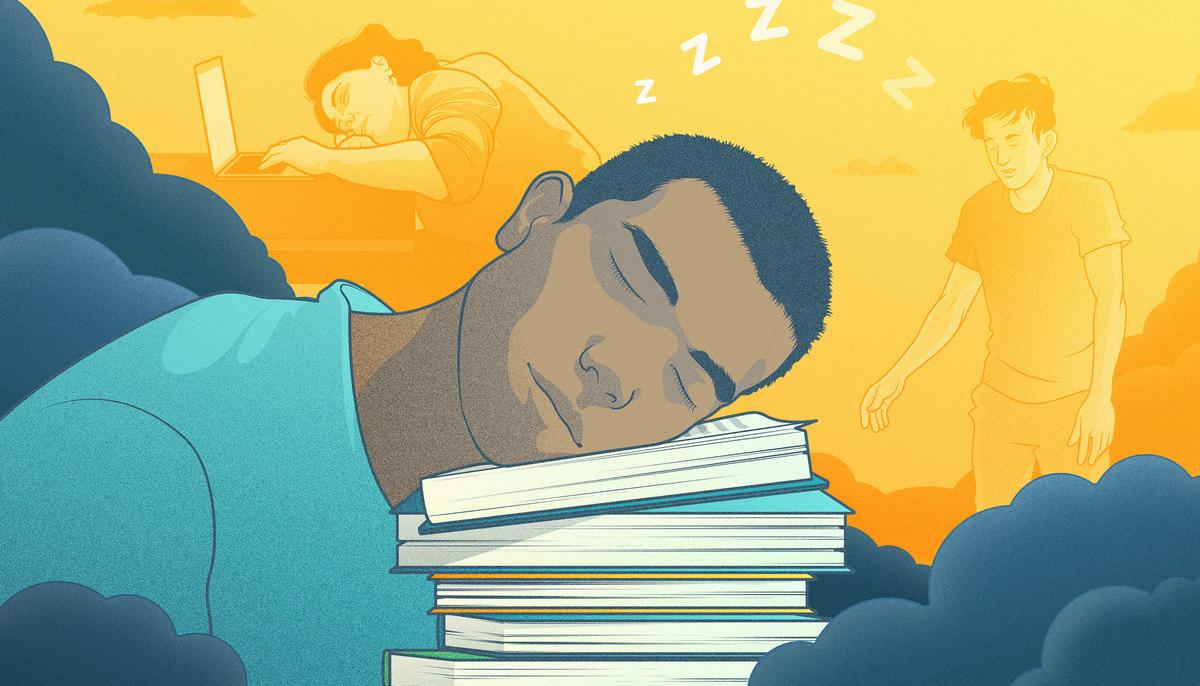Although sleep is an essential component of existence, with significant benefits for both physical health and mental well-being, the lack of information about what actually happens to the body when we sleep, or not, leads to statements like the ones mentioned at the beginning.
The idea that nothing happens during sleep is as untrue as possible, on the contrary, some parts of the brain are quite active when we sleep. Sleep is the way in which the body has the chance to recover after the day's work and to restore the energy level necessary for the next day's activities. A restful sleep at night helps us to better manage the stress during the day , to solve problems faster, including to recover from an illness in a shorter period of time. We are more productive when we have a restful and sufficient sleep, not when we sleep little.
On the other hand, when sleep is little and of poor quality, health problems can occur, behavior changes, we think and feel differently when we are tired, and the ability to react decreases considerably due to fatigue.
How much sleep do we need?
There is no standard number of hours of sleep required, a generally valid figure, but age is an important factor:
- Babies need about 16 hours of sleep in 24 hours
- Small children need about 12 hours of sleep day and night
- Teenagers - approx. 9 hours of sleep per night
- Adults need 7 to 8 hours of sleep, with the mention that there are people for whom 5 hours is enough, but also people who need up to 10 hours of sleep
- Pregnant women, especially in the first trimester, need more sleep. A woman who used to sleep 8 hours a night, at the beginning of pregnancy, it is possible to reach 9 - 9 and a half hours of sleep.
Does the body get used to less sleep?
Normally, people cannot adjust the number of hours of sleep the body needs according to their schedule. The reduction from 8 hours of nightly rest to 6 hours to solve office or household problems, after the children have fallen asleep, can turn into a habit, causing the person in question to believe that he has reduced the amount of necessary rest, that the "body" got used to sleeping less , but in the long term, this lack of sleep can affect the cognitive function.
Signs that we are not sleeping enough (sleep deprivation)
We know that we do not sleep as much as we should or that the sleep is not restful when:
- We fall asleep almost instantly, in a few minutes from the moment we sat down in bed
- I was experiencing sleepiness during the day
- There are episodes of sleepiness during the day or short periods of light sleep.
Sleep deprivation is particularly dangerous, especially at the wheel, for example the US National Highway Traffic Safety Administration estimates that around 100,000 car accidents occurred due to excessive fatigue.
Methods to improve sleep quality
Adopt a sleep-friendly routine and practice good habits before bedtime . Perseverance in adopting and maintaining these habits make the difference between a restful sleep and a poor quality sleep:
- Sleep schedule - the sleep schedule is not the prerogative of small children, adults also need a schedule, so go to bed around the same time, including on weekends or holidays, do not lose sight of the fact that routine is good for the brain.
- It is recommended to make the lists of what you have to do the next day in the evening, before bedtime, so that your mind does not get stuck in counting the tasks of the next day.
- Create a pleasant sleeping environment , with a comfortable bed, turn off the lights, avoid loud noises, keep an optimal temperature in the room where you sleep.
- Create a daily routine of physical exercises because physical activity every day brings many advantages both for the general state of health and for a restful sleep, with the mention that it is recommended that physical effort be avoided a few hours before sleeping at night.
- Relax with anything that brings you joy, a warm bath, a book, a tea, and avoid using phones, screens in general before going to bed.
- If you suspect that you suffer from a sleep disorder , such as insomnia , contact your family doctor first and ask them to refer you to a specialist if necessary.
- Eliminate health problems that affect sleep, such as sleep apnea - breathing blockages that cause us to wake up during sleep.
What not to do before sleep?
Before sleep it is recommended to:
- Do not consume caffeine, nicotine or alcohol in the second part of the day, these three substances negatively influence both the ability to fall asleep and maintaining sleep.
- Do not sit awake, "sleepless" in bed, try a calming activity (book, massage) until you feel the need to sleep.
- Do not think about all the negative events or the fact that you will again have problems with sleep and will not sleep enough.
- Do not use the mobile phone and other electronic devices before sleep. They can interfere with the production of melatonin .
What happens while we sleep?
Sleep influences our health and mood in several ways:
- In children and young adults, deep sleep supports the development process . During sleep, human growth hormone is released. At the same time, it increases the production of proteins necessary for the cells to develop and to repair the "damages" suffered by the body.
- The functioning of the nervous system also depends on the quantity and quality of sleep, lack of sleep affects memory, academic and professional performance and the ability to think clearly.
- Currently available research cannot fully explain why sleep is so necessary, but animal studies have revealed that sleep deprivation decreases life expectancy and affects the body's ability to defend itself (the immune system that protects us from infections) .
- Well-being is directly proportional to restful sleep, and people who do not sleep enough have a higher risk of developing medical conditions and health problems such as obesity, diabetes and cardiovascular diseases.
Reduced performance, weight gain, sleepiness and fatigue during the day, mental health problems and the risk of chronic, metabolic and heart diseases are among the consequences of insufficient or poor quality sleep. It is important to make sure that we sleep enough to keep us healthy and productive.







